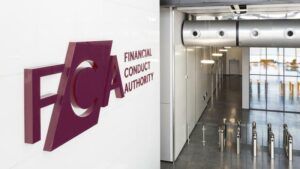The Sierra Club has urged institutional investors — particularly asset owners, such as pension funds — to confront climate change as a systemic financial threat to the global economy and long-term portfolio returns in its latest paper.
The paper is organised in two parts: first, it explains why climate change must be treated as a system-level financial threat; then, it outlines how investors can use their influence to reduce emissions and protect long-term portfolio value.
It argues that conventional strategies — such as ESG integration and shareholder divestment — don’t confront companies’ climate pollution or the broader economic damage driven by rising emissions. Instead, it lays out a practical framework for ‘system-level investing’ that prioritises real-world impact to mitigate systemic risk.
“Understanding climate change as a system-wide financial threat should serve as a wake-up call”, said the paper’s author, Ben Cushing, director of the Sierra Club’s sustainable finance campaign.
“Traditional investing strategies — including many labeled ‘sustainable’ — are not designed to mitigate the economy-wide impacts of the climate crisis on most retirement funds and long-term portfolios. Too much of what passes for sustainable investing today fixates on how climate risks might affect individual companies — but the far greater financial threat stems from how some companies are fueling the climate crisis.
“Climate change is a systemic financial risk, and investors — especially large asset owners — can’t safeguard long-term portfolios unless they help reduce emissions across the economy. It’s time for sustainable investing to prioritise real-world outcomes over optics.”
Systemic climate risk ‘demands a new approach’
Climate change poses a massive and growing threat to the global economy and to long-term investment performance. Research cited in the paper projects that if emissions continue on their current path, climate change could lead to $38trn in annual economic losses and a 40% drop in global stock values by mid-century. Yet many investors continue to rely on outdated models and narrow frameworks that fail to account for these systemic risks.
For diversified investors, the primary driver of long-term returns is the health of the overall market, which cannot be safeguarded through firm-level risk management alone, the Sierra Club said. Therefore, to protect long-term value, investors must use their influence to reduce real-world emissions and address the drivers of climate breakdown.
There are four strategic levers for investors to confront systemic climate risk.
- Capital allocation: Restrict new debt and equity financing for fossil fuel expansion, condition capital access for major emitters on credible decarbonisation commitments, and scale investments in the development and deployment of clean energy and other climate solutions.
- Corporate stewardship: Enforce accountability for portfolio companies’ emissions, capital expenditures, and lobbying practices. Exercise shareholder voting rights, corporate engagement, and bondholder leverage to drive climate progress.
- Policy advocacy: Support robust climate policies—emissions limits on heavy emitters, clean energy incentives, financial regulations, and lobbying reforms—that drive decarbonization across the economy and strengthen market-wide stability.
- Service-provider accountability: Ensure asset managers, proxy advisors, and consultants integrate systemic climate risk considerations into capital allocation and stewardship mandates—aligning intermediaries with long-term fiduciary responsibility.
“Perpetuating a financial system that defers to corporate self-interest over global prosperity and resilience is no longer tenable,” the paper concludes. “The window to prevent far greater economic and financial harm is closing. To support a stronger, more sustainable economy, investors must prioritise credible impact over symbolic alignment, and use their full influence to accelerate decarbonisation — now.”








